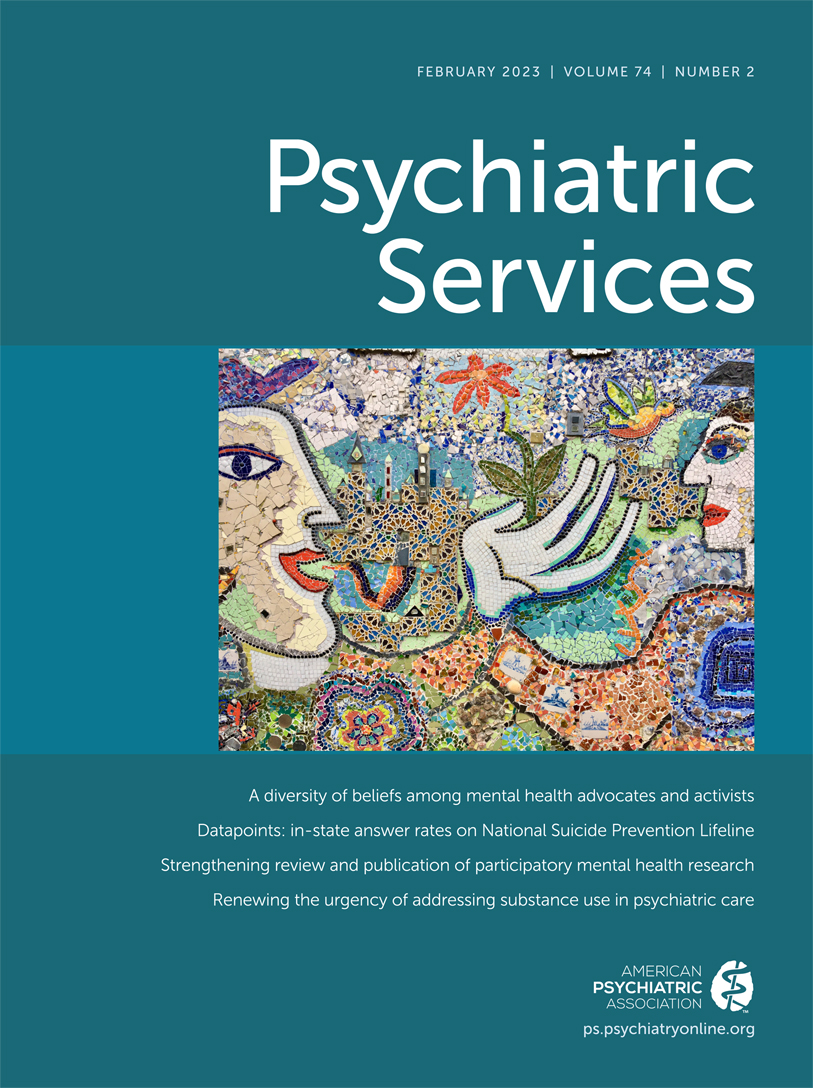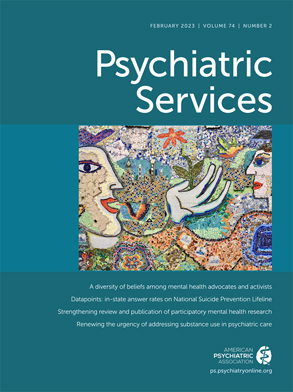Human trafficking is increasingly being viewed through a public health lens, which allows us to address it as an issue that affects health. With this approach, psychiatrists can focus on preventive measures and on the health care needs of individuals who have experienced trafficking. Psychiatrists in San Diego have partnered with the local community to address trafficking through clinical services and development of policies for identification and appropriate care of trafficking survivors.
Clinical work began when a University of California, San Diego (UCSD), family medicine–psychiatry resident (R.R.) with an interest in working with this population developed relationships with community organizations. Many organizations used therapists to provide behavioral health support, but they were unable to access trauma-informed psychiatric services in a timely fashion. To improve access to high-quality care, the resident began seeing patients via both residential and outpatient programs for sex trafficking survivors, initially within a self-designed elective rotation and then during formal rotations through UCSD’s community psychiatry program.
The clinical sites included a federally qualified health center and a county-funded specialty clinic that together have served more than 100 patients who have been trafficked for sex. All women at a residential treatment program for survivors of sex trafficking were enrolled as patients. They received their primary care from family medicine residents trained by the family medicine–psychiatry resident in providing care for survivors of human trafficking, and they received psychiatric care from psychiatry residents. The primary psychiatrist (R.R. or P.O.) maintained regular contact with treatment program staff, when patients gave consent to do so, to ensure a unified treatment plan. Patients received group and individual trauma-based therapies through the residential treatment program as well as educational, life skills, and arts-based group sessions. Most women remained in the program for 6–12 months. The county-funded specialized clinic provided services to youths who experienced or were at risk of commercial sexual exploitation. Services included case management and individual and group psychotherapy. The psychiatrist (P.O.) collaborated closely with therapists and case managers, who often attended sessions to enhance the trauma-informed approach.
UCSD also formed a multidisciplinary committee, now cochaired by a community psychiatrist (P.O.), comprising UCSD faculty, nurses, social workers, medical trainees, and community partners. The committee developed and implemented a policy and screening protocol with guidance from a protocol development tool kit from HEAL Trafficking and Hope for Justice. The protocol includes guidance on how to assess patients for signs of human trafficking, steps for providing a trauma-informed response, and an overview of how and when to engage law enforcement or child protective services. Additionally, the committee hosts an annual human trafficking awareness event to educate health system staff and encourage collaboration. Tools to educate health system staff about both human trafficking and trauma-informed care are being developed.
There were several barriers to developing psychiatric services for this population. Few psychiatrists have expertise in working with this population, and the original work in San Diego County was completed by a resident with limited topic-specific supervision. Clinical barriers included occasional difficulties in communication because of a lack of a centralized area for exchange of medical information. Also, psychiatrists often lack awareness and knowledge about human trafficking and how to address it in clinical settings. Many other programs in the area also had funding restrictions, which limited services to certain age groups or types of trafficking. These barriers limit access to needed services for several populations, including survivors of labor trafficking and male survivors of trafficking.
Psychiatry has a critical role to play in the public health response to human trafficking. Because this is a relatively novel area of medicine, there is ample room for expansion. We continue to develop educational tools and evaluate and expand our protocol. This early work has focused on sex trafficking. However, we must also consider the needs of labor trafficking survivors, who are rarely offered treatment and have frequently experienced trauma. Overall, these activities demonstrate that psychiatrists can be involved in a multipronged approach to addressing human trafficking as a public health issue.

